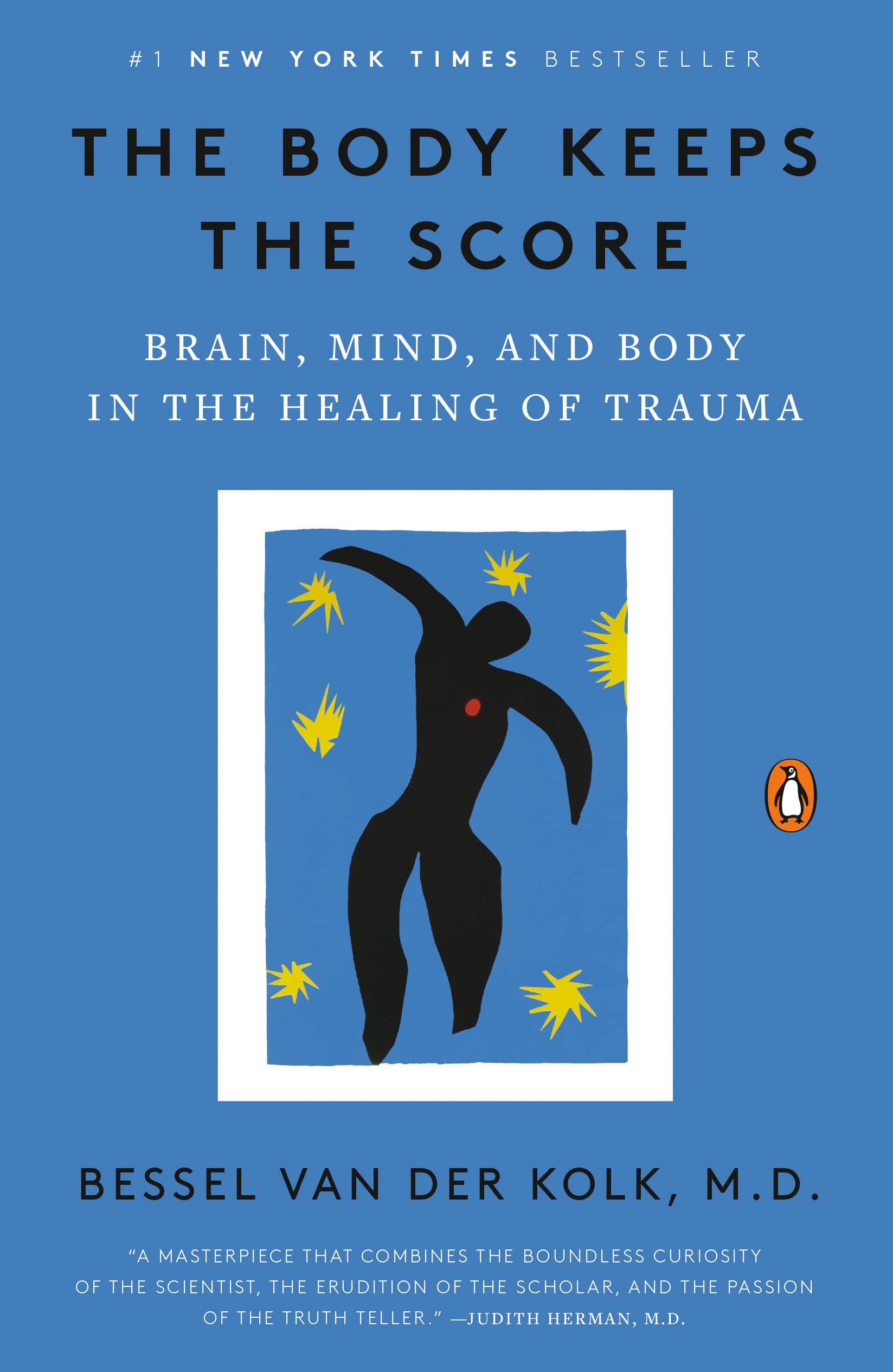What's On Our Bookshelf? "The Body Keeps the Score: Brain, Mind, and Body in the Healing of Trauma" by Bessel van der Kolk, M.D.
By Reva Cook, LCSW
Did you know that 70% of adults in the United States have experienced a traumatic event at least once in their lives? That’s over 220 million people! Traumatic experiences are not just a one time event, but can have a profound impact on our health and well-being throughout our lives if not addressed.
As a trauma therapist, The Body Keeps The Score: Brain, Mind, and Body in the Healing of Trauma is my clinical bible. I see the information in this book in real life every day in my office. Many clients come in feeling hopeless and overwhelmed, convinced their past traumas will continue to intrude upon their present day lives. I really resonate with and subscribe to van der Kolk's attitude of hopefulness, compassion, and ability for humans to heal.
This is the OG book on trauma. It is incredibly thorough and informative. It's very dense, and at times reads more like a text book. Many people have told me that they have to read it slowly and take breaks because there's so much to digest and take in. It took me a while to get through it as well- I had to read it in 30 minute chunks, then let it settle.
Dr. van der Kolk gives very in depth explanations about how trauma impacts the brain and the body. There are lots of case studies and examples- some of which are intense and may be disturbing to some readers at times. It is easy to skip those if you need to, and you'll still understand the points of the book. van der Kolk explains complex PTSD particularly well, which many people with traumatic or neglectful childhood will find helpful. He does a good job detailing each of the current and prevailing trauma therapies, how they might be helpful and what the research says about each. This could be very helpful for someone wanting to learn about all the different therapies that could help them heal.
I think this book is a trauma must-read, whether you’ve experience trauma personally or love someone who has. You may need to work up to it or take it slowly. It is a heavy topic and a lot of information, but extremely valuable. Ultimately it provides so much hope for how the human brain and body can heal, and that people can live their lives unemcumbered.
“Long after a traumatic experience is over, it may be reactivated at the slightest hint of danger and mobilize disturbed brain circuits and secrete massive amounts of stress hormones. This precipitates unpleasant emotions intense physical sensations, and impulsive and aggressive actions. These posttraumatic reactions feel incomprehensible and overwhelming. Feeling out of control, survivors of trauma often begin to fear that they are damaged to the core and beyond redemption. ”

